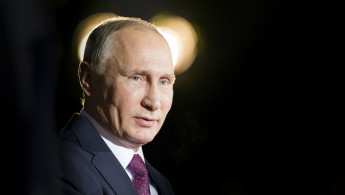Russia withdraws from the International Criminal Court
Russia initially joined the ICC, the international court for war crimes, in 2000 when it first signed the Rome Statute.
The signature did not receive government approval however and Russia never ratified the treaty.
"The court did not live up to the hopes associated with it and did not become truly independent," Russia's foreign ministry said in a press release.
"It is worth noting that during the 14 years of the Court's work it passed only four sentences having spent over a billion dollars."
Russia said it is unhappy with the way the ICC treated the case on Russia's short war with Georgia in 2008.
It said that the court had ignored attacks against civilians by Georgian troops in South Ossetia before Russia's invasion.
"In these conditions one cannot speak of trust in the International Criminal Court," the ministry said in its statement.
It is understood that the ICC had gathered evidence of Russian war crimes in 2008 and were looking to prosecute.
"We have information that there were attacks on peacekeepers both from Russia and Georgia. We are going to obtain further information about this," said attorney general for the ICC, Fatou Bensouda, in February 2016.
The foreign ministry said that president Putin had announced the country's withdrawal in his decree: "On the intention not to become a party to the Rome Statute of the International Criminal Court".
Meanwhile, Moscow also faces criticism for the use of illegal munitions in its bombing of Syria.
Activists and NGOs have accused Russia of using banned cluster and napalm-like incendiary bombs on residential areas.
Russian war planes have also been accused of orchestrating a reign of terror in Syrian opposition areas, bombing school and hospital, and destroying homes.
Opponents of Russia's military campaign in Syria have described the manner of the intervention as "war crimes".
Moscow also faces criticism from the West for its annexation of Crimea and support for pro-Russian seperatist groups in east Ukraine.





 Follow the Middle East's top stories in English at The New Arab on Google News
Follow the Middle East's top stories in English at The New Arab on Google News
![The UAE is widely suspected of arming the RSF militia [Getty]](/sites/default/files/styles/image_330x185/public/2024-11/GettyImages-472529908.jpg?h=69f2b9d0&itok=Yauw3YTG)
![Netanyahu furiously denounced the ICC [Getty]](/sites/default/files/styles/image_330x185/public/2024-11/GettyImages-2169352575.jpg?h=199d8c1f&itok=-vRiruf5)
![Both Hamas and the Palestinian Authority welcomed the ICC arrest warrants [Getty]](/sites/default/files/styles/image_330x185/public/2024-11/GettyImages-2178351173.jpg?h=199d8c1f&itok=TV858iVg)